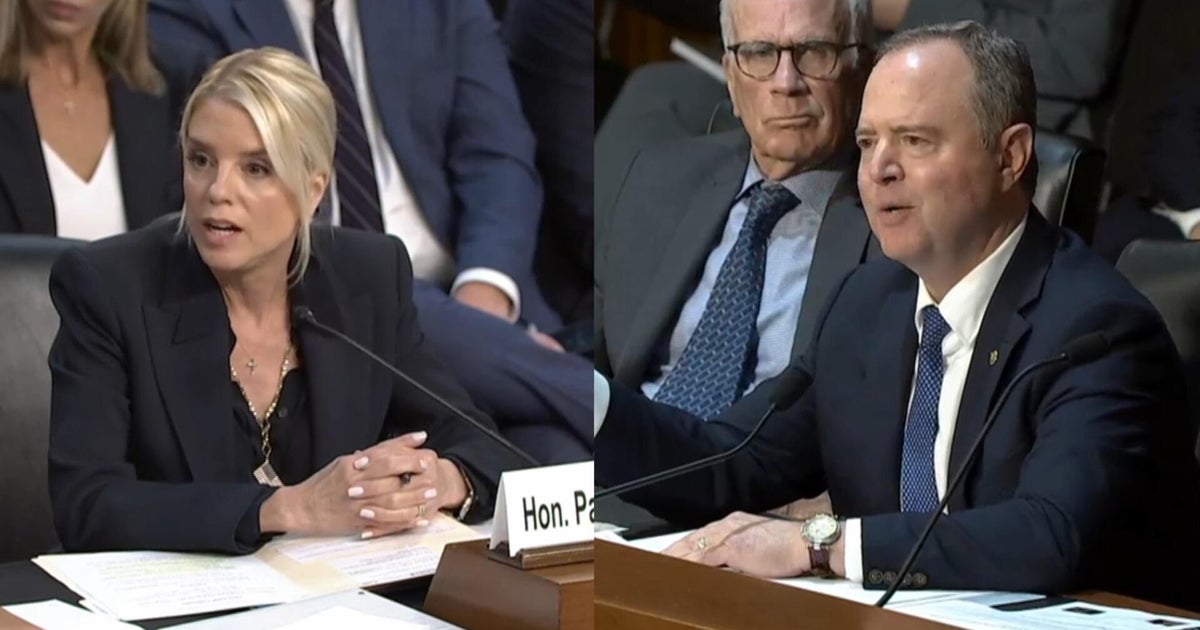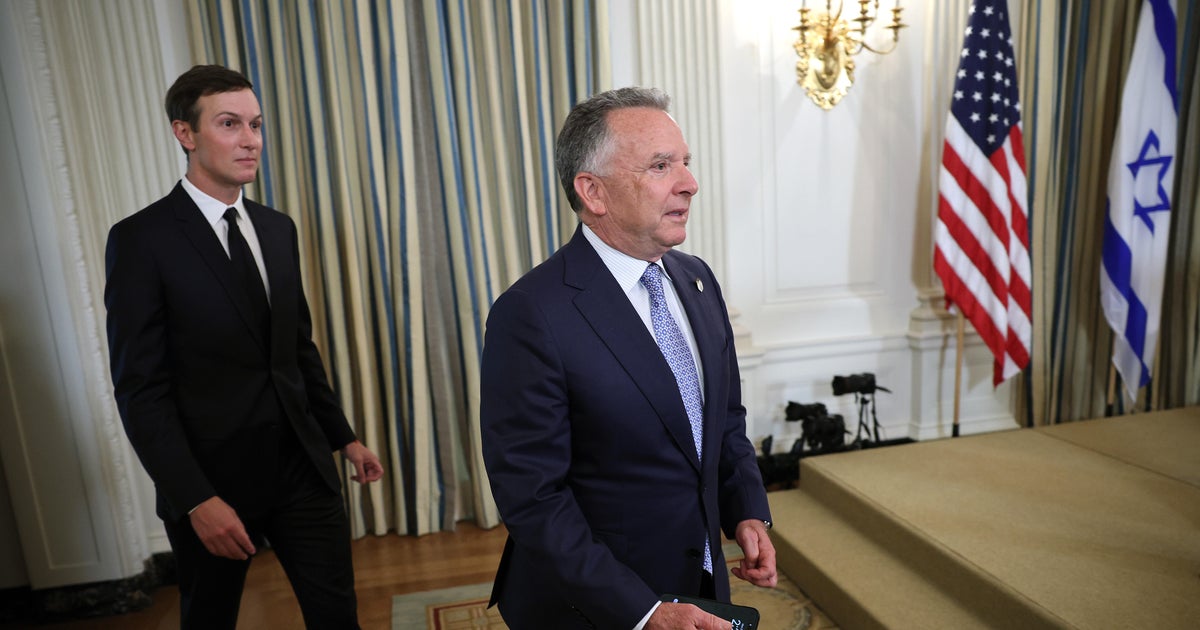Russell Vought, the White House budget director, was preparing the Trump administration’s 2026 budget proposal earlier this year when his staff got some surprising news: Elon Musk’s cost-cutting team was unilaterally axing items that Vought had intended to keep.
Vought, a numbers wonk who rarely raises his voice, could barely contain his frustration, telling colleagues that he felt sidelined and undermined by the haphazard chaos of the Musk-led Department of Government Efficiency, according to six people with knowledge of his comments who, like others interviewed for this article, spoke on the condition of anonymity for fear of retribution.
“We’re going to let DOGE break things, and we’ll pick up the pieces later,” Vought told his staff during one flash of irritation, according to three of those people. Vought’s spokesperson, Rachel Cauley, denied that he made those comments and that he felt frustrated by Musk.

The meticulous approach of Russell Vought, pictured with Donald Trump, has won him significant appreciation within Trump’s MAGA movement.Credit: Haiyun Jiang/The New York Times
This had not been Vought’s plan.
Vought, who also directed the White House Office of Management and Budget in President Donald Trump’s first term, had spent four years in exile from power. He worked through Joe Biden’s presidency from an old row house near the Capitol, where he complained of pigeons infesting his ceiling and co-ordinated with other Trump loyalists to draw up sweeping, detailed plans for a comeback.
He had carefully analysed mistakes from the first term. And he had laid out steps to achieve the long-sought conservative goal of a president with dramatically expanded authority over the executive branch, including the power to cut off spending, fire employees, control independent agencies and deregulate the economy.
Musk, who spent more than $US250 million ($379 million) to help elect Trump, had celebrity, access to the president and political capital that the budget director could never hope for.
But Vought (pronounced “vote”) had something Musk did not: he had done his homework.
Loading
In the months since Musk fell out with the president, Vought has at last begun to put his plans into action – remaking the presidency, block by block, by restoring powers weakened after the Nixon administration. His efforts are helping Trump exert authority more aggressively than any modern president, and are threatening an erosion of the long-standing checks and balances in America’s constitutional system.
Now, as the government heads towards a shutdown when federal funding lapses on Tuesday, Vought, 49, is leveraging the moment to further advance his goals of slashing agencies and purging employees, with his office telling agencies to prepare for mass firings unless Congress can strike a deal to keep the government open.

Double-act cracked: Elon Musk’s and Trump’s chaotic DOGE days ended in an acrimonious parting of the ways. Credit: AP
The ultimatum follows a string of achievements for Vought.
This northern summer, he pressured lawmakers to enact his plan to cancel $US9 billion for foreign aid and public broadcasting that they had previously approved – an unusual bow by Congress to the White House. The new law claimed another prize for conservatives: the death of the Corporation for Public Broadcasting. And a deal Vought cut with House Republicans helped secure passage of Trump’s domestic policy law that slashed spending on Medicaid and food stamps.
He has spearheaded a push to erase hundreds of regulations on the environment, health, transport, food and worker safety, telling Trump at an August cabinet meeting that his efforts had led to 245 deregulatory initiatives this year. He has asserted White House power over independent agencies like the Federal Reserve, championing an executive order that forced them to submit their regulatory actions to his office for approval.
As the acting head of the Consumer Financial Protection Bureau, the agency charged with enforcing rules to protect people from predatory financial practices, he halted nearly all of the agency’s work and sought to fire 90 per cent of its staff.
Loading
At the heart of Vought’s plan, associates say, is the intentional engineering of a legal battle over the power of Congress to decide how government money is spent, potentially creating a new legal precedent for the president to block spending on any programs and policies he dislikes.
The next step in the fight is a legally untested manoeuvre in which the Trump administration would cancel another $US4.9 billion in foreign aid spending – this time without congressional approval. The gambit, known as a “pocket rescission”, involves the White House eliminating the spending unless Congress votes to stop it by September 30, the end of the fiscal year.
The threat has enraged many lawmakers, including some Republicans: Senator Susan Collins, chair of the appropriations committee, called it illegal. But as the deadline has neared, they have done nothing to stop it. Vought is confident that the White House would win a Supreme Court battle over the moves to stop spending, according to his associates.
“He is lining up the billiards shots, getting each ball in place, one by one, for each consecutive move,” said Grover Norquist, an anti-tax activist.
For the leaders of Trump’s Make America Great Again movement, Vought is seen as the disciplined architect who channelled the passion of MAGA into an actionable policy blueprint. Slain activist Charlie Kirk, whose podcast was one of many where Vought regularly shared his views with the Republican base, called Vought “an absolute rock star”.
To many legal experts, Vought’s work is a threat to the foundations of democracy.
“One of the main sources of power that Congress has over the executive branch is the budget,” said Eloise Pasachoff, a law professor at Georgetown University. “If the executive branch isn’t controlled by the power of the purse, then there is very little that will control the president.”
She added: “It’s a fundamental challenge to liberty for every single person in America.”
Vought, who declined through his spokesperson to be interviewed, sees it differently. He said in a speech this month that his mission was to bring to heel an unelected federal bureaucracy he likened to a “cartel working behind closed doors”.
“We have now been embarked on deconstructing this administrative state,” he said. “Step after step, it’s to move quickly, trying to think through what the founders would have done in the circumstances, and be aggressive.”
MAGA’s ‘bulldog’
Vought started envisioning a blueprint to slash the federal government long before Trump was a Republican.
After graduating from Wheaton College, an evangelical Christian school in Illinois, Vought went to Washington to work for Senator Phil Gramm of Texas, a Republican champion of fiscal austerity.
Gramm recalled his young staff member as prodigiously hardworking, attending law school by night while working by day to help his boss shrink the government.
“Russ worked for me as a child, and I’m proud of what he’s doing now,” said Gramm, who retired from the Senate in 2002.

Vought speaks at the White House in 2019.Credit: AP
Vought went on to direct budget policy for House Republicans during the rise of the Tea Party movement, when populist demand for smaller government propelled a wave of hard-line conservatives into Washington.
It was not a given that he would join the first Trump administration. Vought, who friends say is deeply driven by his faith and often leads adult Bible study classes at his Baptist church, considered opting out of Washington to attend a seminary and become a pastor. In 2017, he heeded the call of the White House.
During Trump’s first term, Vought argued that the president had the power to block federal spending that Congress had approved. He was part of a group of White House officials who froze military spending for Ukraine in defiance of Congress, paving a path to the president’s impeachment.
He also helped come up with the idea of using emergency powers to build a border wall without congressional approval and pushed an executive order that could have enabled the president to easily fire tens of thousands of career civil servants.
The budget office was eventually forced to restore the Ukraine money, and the other moves were reversed by the Biden administration.
After the 2020 election, Vought started the Centre for Renewing America, a think tank devoted to sustaining Trump’s policies.
The clawing of either rats or pigeons in his office walls was so loud that it distracted visitors, according to a recent book, Mad House. But Vought remained focused on his mission.
In 2022, he released a 104-page “shadow budget”, a prescription to remove “the scourge of woke and weaponised bureaucracy aimed at the American people”: deep cuts to Medicaid, foreign aid, scientific research and other programs.
Loading
Outraged when Kevin McCarthy, the Republican House Speaker, cut a deal with Biden to raise the debt ceiling, Vought pushed House Republicans to take the extraordinary step of ousting their leader.
Vought’s public comments began to take on a more hard-line tilt. His think tank published papers establishing a rationale for why it would be lawful to deploy troops on US soil, and advocating the elimination of the post-Watergate norm of Justice Department independence.
Steve Bannon, a former Trump adviser whose War Room podcast is popular with the base, declared him “MAGA’s bulldog”.
Back to the White House
After Trump won a second term, Vought devoted himself to preparing for a do-over – one that was bigger, bolder and, crucially, lasting.
Eyeing his next role, Vought described how the White House budget director would be critical in transforming the federal government. “Presidents use the OMB (Office of Management and Budget) to tame the bureaucracy, the administrative state,” he told conservative commentator Tucker Carlson days after the 2024 election.
Vought’s research was featured in Project 2025, the policy blueprint prepared by the conservative Heritage Foundation for Trump’s return to office. Vought also drafted potential executive orders.

Former White House strategist Steve Bannon is a strong Vought advocate.Credit: AP
But tensions emerged soon after Elon Musk parachuted into Washington with a mandate to upend the federal bureaucracy.
“DOGE would have been far more effective from day one had they bothered to ask Russ and team how to achieve their goals,” said Joe Grogan, a friend of Vought’s who led the White House Domestic Policy Council in the first Trump administration.
Now, in the post-Musk era, Vought appears to be relishing his moment. He works long hours and weekends in his suite in the Eisenhower Executive Office Building next to the White House, where he oversees a staff of more than 500.
In the White House, Vought is not seen as a part of Trump’s inner circle, according to four people with knowledge of the dynamics. He regularly quotes the Bible and never curses – a sharp contrast with a president who sometimes refers to Christians in the third person. But people familiar with the relationship between the two men say that the president recognises in Vought something that he highly values: a seasoned loyalist who knows how to use the federal budget to deliver what Trump wants.
“Russ knows exactly how to dismantle the Deep State and end weaponised government,” Trump wrote in a statement when nominating Vought.
Now, Vought is building the case to achieve one of his primary objectives: securing the president’s authority to block congressionally approved spending on programs he dislikes.

Former US president Richard Nixon.Credit: AP
To that end, Vought is laying the groundwork for a legal battle over the Impoundment Control Act of 1974, enacted by Congress in the wake of president Richard Nixon’s moves to block agency spending he opposed.
Vought, who says the law is unconstitutional, would like to see it overturned.
That goal has driven him to his current “pocket rescissions” package.
Vought’s friends say his actions are designed to provoke a lawsuit from the Government Accountability Office, the congressional watchdog, which has said the pocket rescission is illegal and “would cede Congress’ power of the purse”.
“Russ absolutely believes he is on sound legal footing and that he will be vindicated at the Supreme Court,” Grogan said.
Vought is already looking forward to that outcome, declaring on conservative commentator Glenn Beck’s show this spring: “We will have a much smaller bureaucracy as a result of it.”
This article originally appeared in The New York Times.
Get a note directly from our foreign correspondents on what’s making headlines around the world. Sign up for our weekly What in the World newsletter.


















































